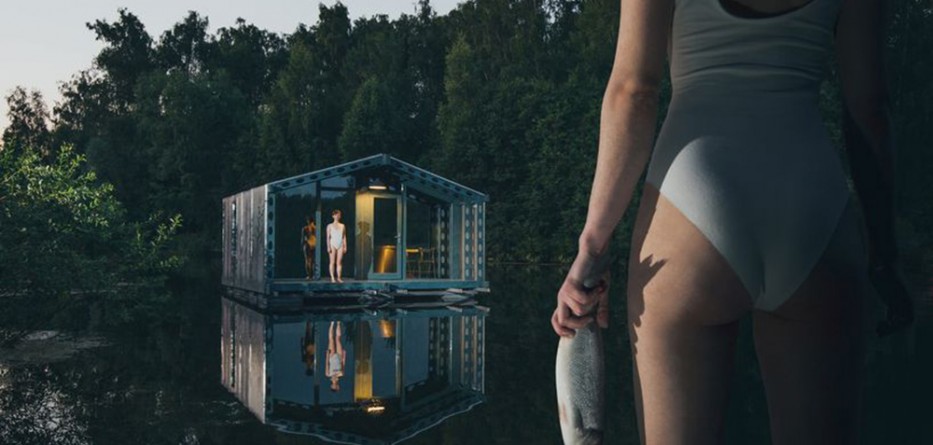Ivan Ovchinnikov of BIO architects has created a prototype of a modular compact house that is able to weather extreme conditions. the DD16 house consists of two modules that are meant to be used by tourists and voyagers wanting to visit remote locations. the frame is made of laminated wood with a milled ports, while the ports help decrease the weight. additionally, in order to help decrease the weight of the inner finishing materials, polyurethane foam is used as insulation. the exterior finishing is made of composite aluminium sheets which is a lightweight material that is resistant to the various environments.
the large glazed windows create an interactive experience between the tenants and the surrounding nature
although BIO architects‘ DD16 house proves to be compact, the internal space maintains its homeliness. the cabin includes a bathroom with a shower, a double bed, a dining table, and an open area where a wooden stove can be installed. due to the large glazing and the great amount of entering light, the interior space visually increases in size. the same principles used for the construction of the house are used for the furnishing — weight reduction and maximum use of space, while hidden niches are used for storage.
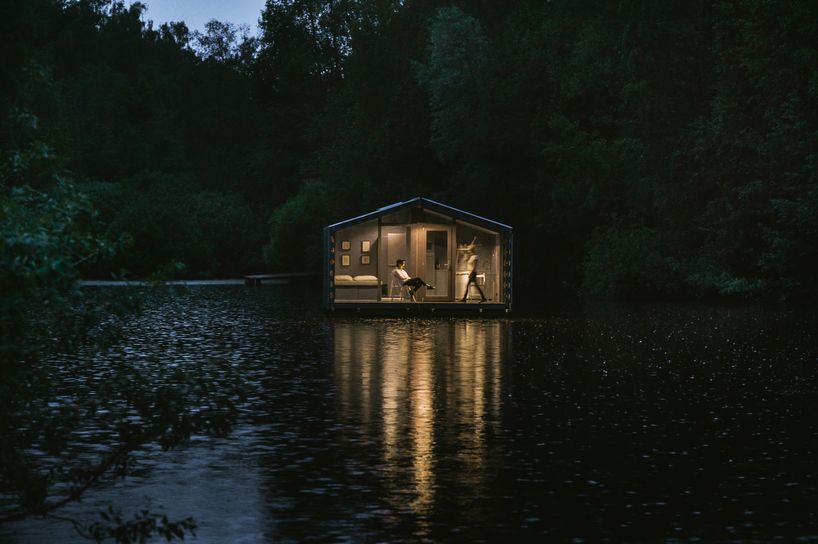
autonomous energy-saving systems are used throughout the house — solar power for electricity, water from the lake and an ecological toilet
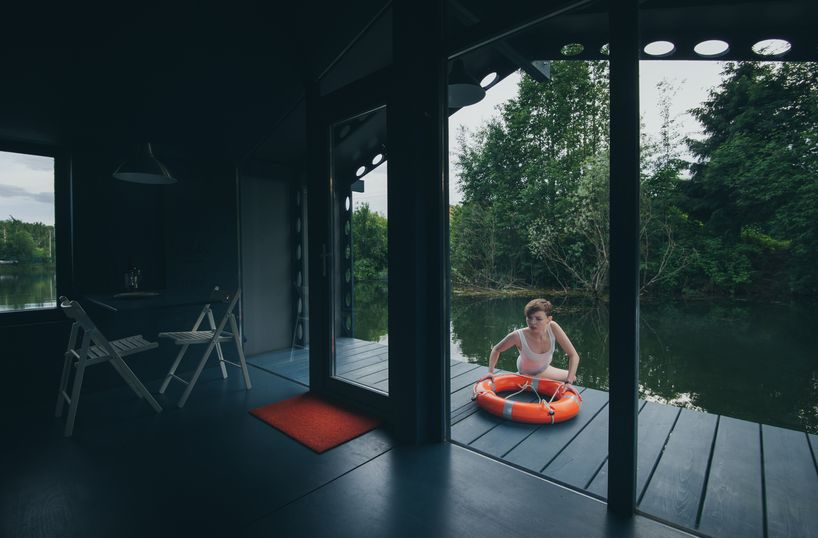
polyurethane foam is used as insulation
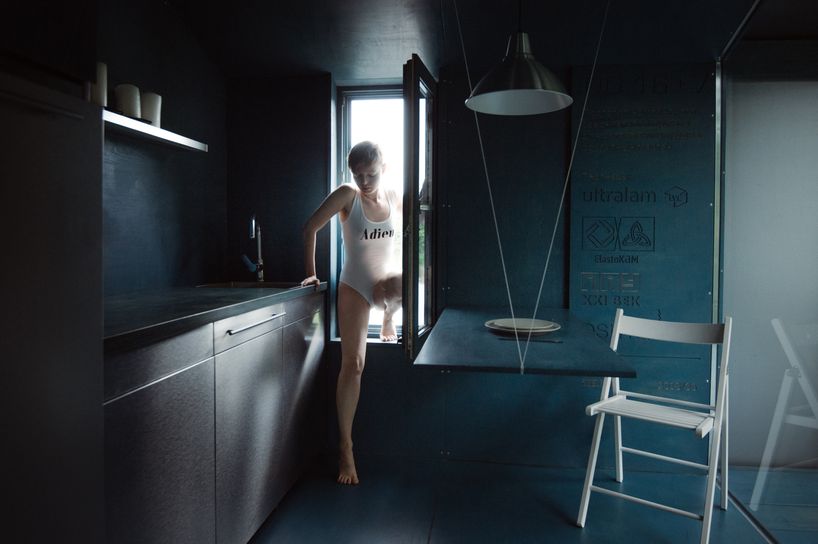
the cabin includes a bathroom with a shower, a double bed, a dining table, and an open area where a wooden stove can be installed
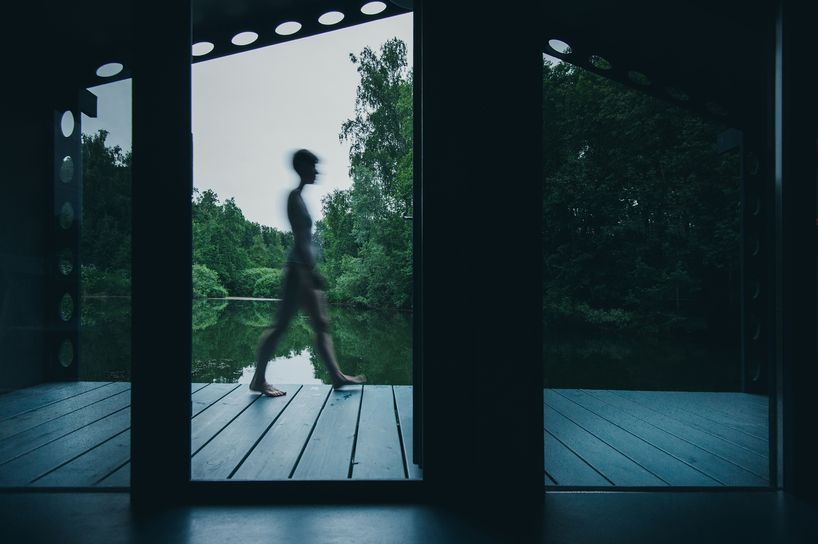
the cabin can easily adapt to various weather conditions
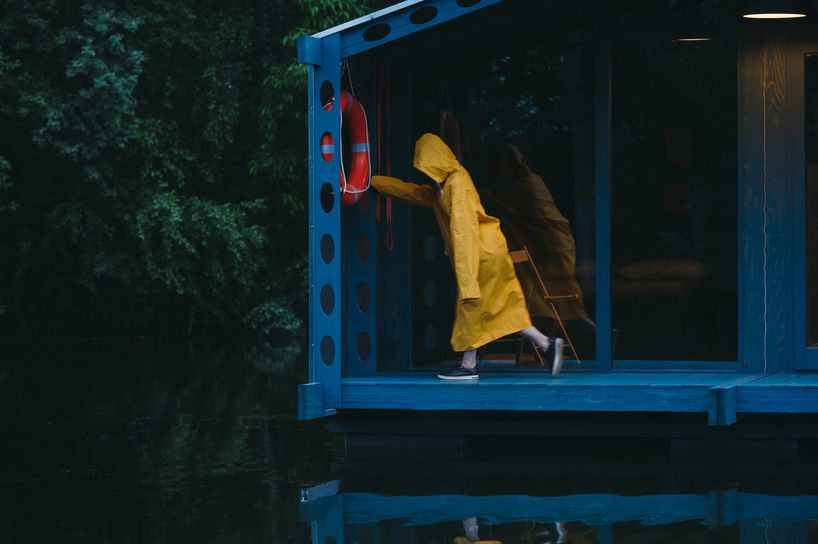
the frame is made of laminated wood with a milled ports

hidden niches are used for storage
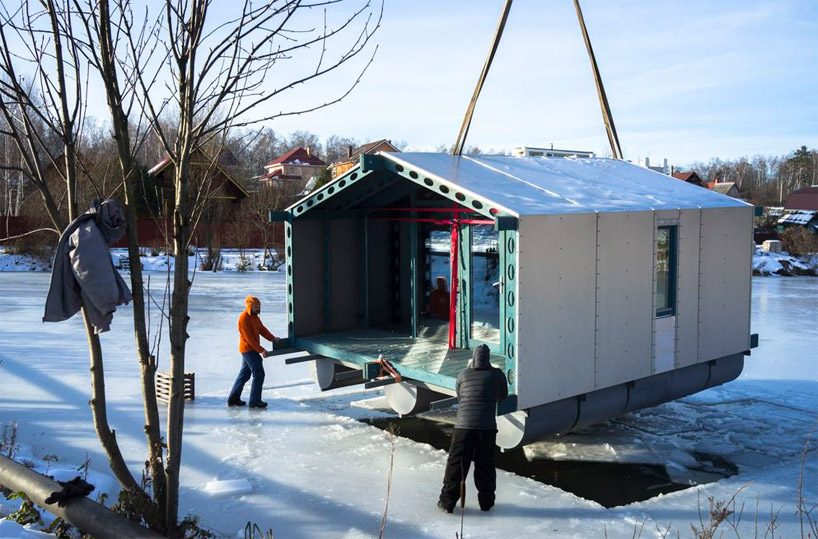
in 2016, the cabin was installed on the lake using modular pontoons so that it can be transported and set on the water
all images © vlad mitrichev
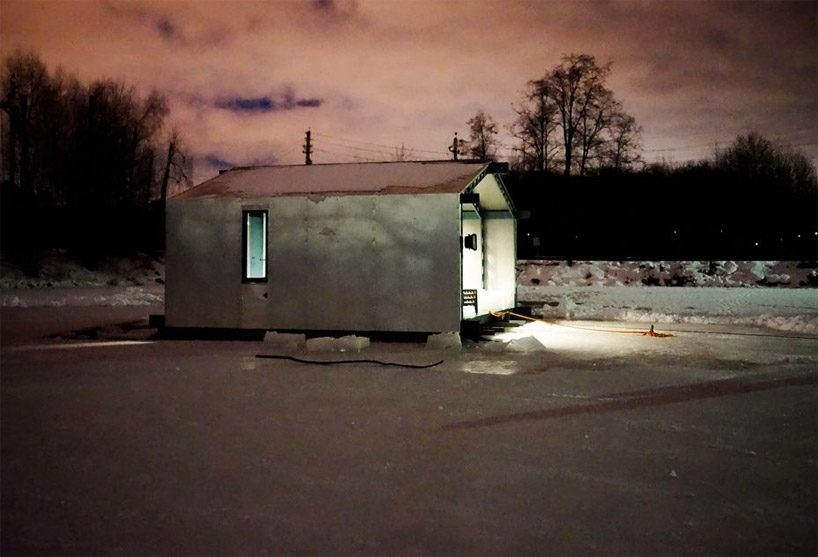
the exterior finishing is made of composite aluminium sheets which is a lightweight material that is resistant to the various environments.
Source: designboom




